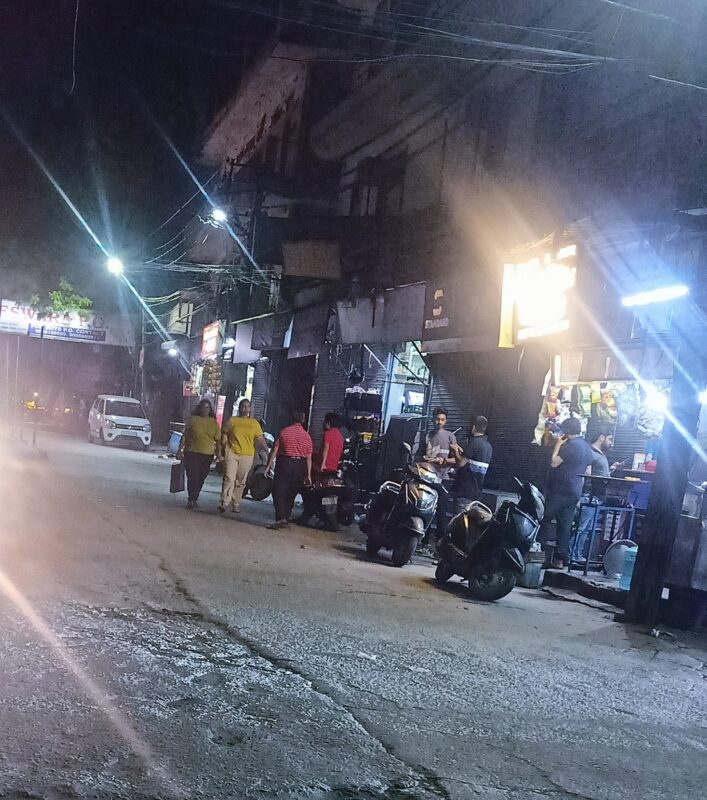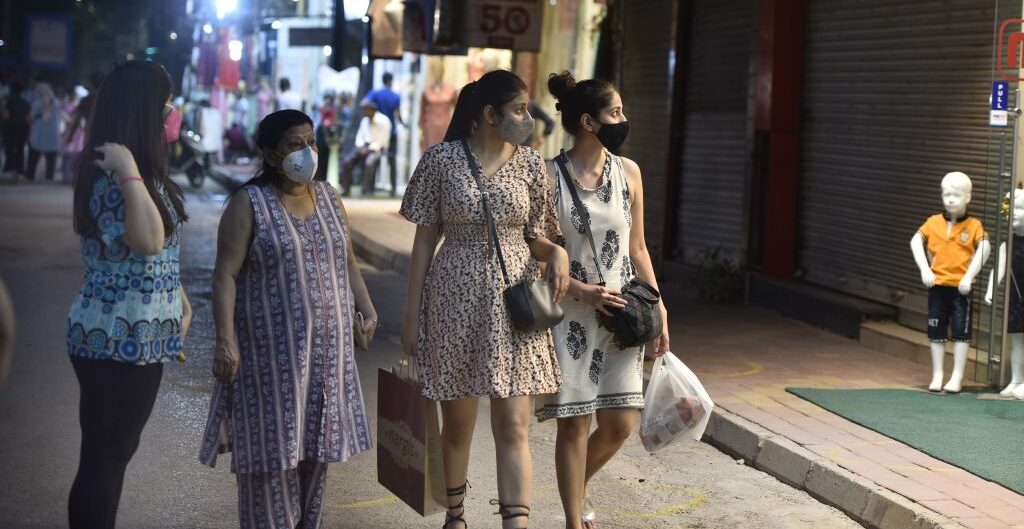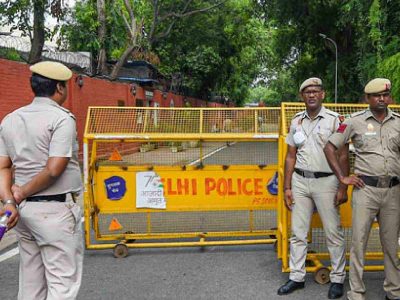While the Delhi government looks to bolster national capital’s economy by encouraging more nightlife, women are not quite certain about the success of the plan given the crime rates in the city.
Recently the city government gave its approval to 155 establishments to stay open 24*7, which is in addition to 314 such places that had received its nod back in October 2022. As per the data, a total of 523 businesses have been given the permission to run round the clock in the past two years.
The government is planning to galvanise the night economy of Delhi. This is an initial move towards pacing up the “Master Plan for Delhi 2041”.
However, this push towards Delhi’s nightlife has garnered mixed responses.
While most women Patriot spoke to expressed their concerns about safety that is already jeopardised during the day, some also appreciated the idea for its potential to create more job opportunities.
Safety concerns
Jyoti Saroya, 24, and Shubhangi, 26, working at a bustling cosmetic store in Karol Bagh, said, “Even in broad daylight, when people walk past the glass doors, they gaze at us, which sends chills down our spine.”
Similar sentiments were expressed by Kherul Nisha and Simran, staff members at a Nykaa cosmetics shop located in Kamla Nagar.
“The gravity of the situation further intensifies as the sun sets. We are worried if there is any preparedness for this within the existing infrastructure and public transportation system.”
Happy about the move’s economic potential, 22-year-old Passang, the owner of an apparel store nestled in the Majnu ka Tila market, said, “I appeal to the government to ensure a safe environment, which is essential not only for women like me but also for the overall vitality and growth of Delhi before the implementation of this plan.”
Like her, Rossmi, who works at the Wongdhen Cafe in Majnu ka Tila, also expressed her concerns over women’s safety and security in the city.
According to the latest National Crime Records Bureau (NCRB) data, Delhi is the most unsafe metropolitan city for women. This report issued in 2021, reveals that cases of crime against women in Delhi accounted for 32.20 percent of the total crimes in the category among all 19 metropolitan cities of India.
Reshu and Aarti, owners of a joint venture in the Tibetan market, highlighted that hardly any business would hire women to work during night shifts.
“Why would they want to spend extra on providing transportation and security to these women? They would want to escape from the extra expenses that safely dropping these women home would incur,” they said.

After the horrific incident of December 16 gang rape and murder, the Delhi Police made it mandatory for private companies to drop their night-shift female employees to their homes. Besides, as per the Shops and Establishments Act and Factories Act, it is mandatory for commercial establishments to provide safe transportation with adequate security for female employees working in late-night shifts. However, most shops avoid hiring women for night shifts to escape these.
Ritu, the owner of an apparel shop Fashion N Passion at Kamla Nagar market, added that this decision is going to be highly disadvantageous for the women, as it is comparatively easier for the men in business to go ahead with running their shops round the clock.
“Most women won’t be able to do the same as they have to manage dual responsibilities of handling both the household chores and the business, unlike most men. This in turn shall hinder their ability to compete effectively with their male counterparts,” said the 44-year-old.
Many also pointed out how the step would “disrupt the peace of the city”.
Owner of a food venture in Majnu ka Tila, Ria said, “I cannot consider opening my shop even if that would offer me promising prospects. This is because of the fear of what may occur in the dark.”
Throwing light on the overuse of the resources, Neha, staff at a shop in the Gaffar Market, highlighted that this may lead to various negative consequences on health. “The implementation of this plan would add to the pollution, demand a lot of electrical energy and resources all of which shall make the already suffering environment of Delhi even more pathetic.”
Positive response
Meanwhile, a few appreciated the move citing more job opportunities in the post-pandemic age.
“This would lead to business progress and would provide people, especially college students and housewives, with potential prospects of getting involved in part-time jobs,” said Farah Mirza, who runs a salon at Hudson Lane.
Highlighting the gender gap, Twinkle Nathani said that this would “mostly benefit boys as families won’t allow women to work during night shifts due to the cultural barriers and biases they hold”. Twinkle works at a shop in Khan Market.





